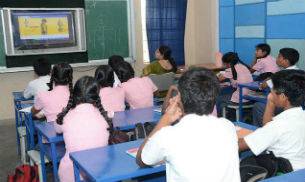India leads in innovative teaching techniques

India is among the few countries in the developing world that are successfully experimenting with innovative teaching techniques in their bid to spread learning across the nation, according to a new report previewed on Sunday March 14.
According to PTI, the Washington DC-based Brookings Institution used areas in rural India, covered by education charity Pratham, as part of its research for the 'Millions Learning: Scaling Up Quality Education in Developing Countries' report, unveiled at the Global Education and Skills Forum (GESF) that took place in Dubai this weekend.
The report found that the Prathams Read India programme was proving to be an effective model that could probably be imitated around India. It will be officially launched in Washington DC next month.
"Pratham piloted the Read India programme aimed at students who are unable to keep up with the level of teaching in their classrooms. They organised extra tutoring for these kids and have come up with different ways of organising this. It has become very effective in increasing reading levels," said Rebecca Winthrop, director of the Center for Universal Education at the Brookings Institution.
The Millions Learning research concluded by saying that scaling quality learning initiatives required open, adaptive, and flexible education systems that fully leverage the range of skills and comparative advantage that various state and non-state partners bring.
Governments have the central responsibility for ensuring that all children get quality education but beyond that, all stakeholders, from social innovators who can experiment and take risks to government agencies that are essential for any education effort to spread nationally, need to work together.
Post Your Comments for this News
Education Trends Articles
-
ITIL® Foundation 2011
2017-03-11 11:01:31
-
Technology transforms education in 2017
2016-12-28 10:11:03
-
Important Trends in Education Technology
2016-12-21 15:45:27
-
Overview of Online Education
2016-12-02 12:00:18
-
What is Heterogeneous Groups in education?
2016-10-11 16:50:31